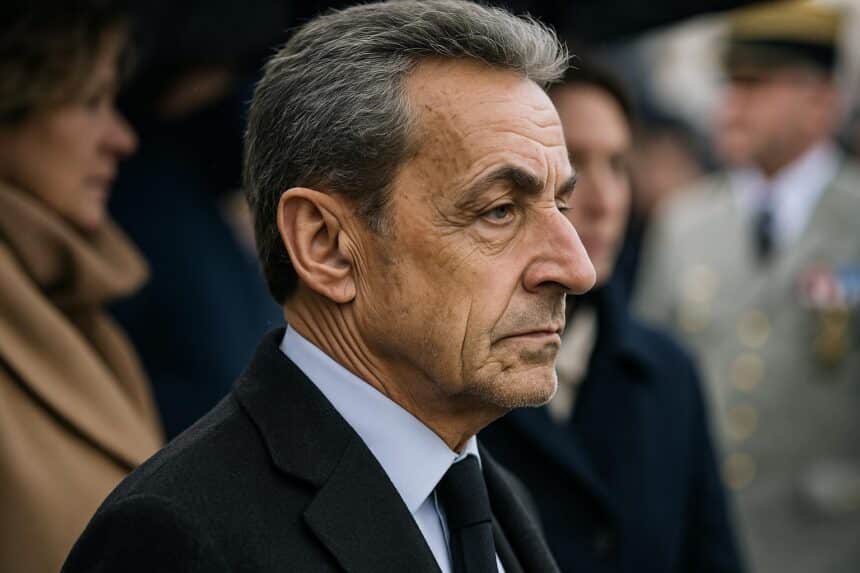Paris court delivers rare jail term
The wooden benches in courtroom 16 were packed on Thursday afternoon when presiding judge Nathalie Gavarino read a verdict few observers believed possible. Former French president Nicolas Sarkozy, icon of the 2007 election night, was found guilty of criminal conspiracy linked to alleged Libyan funding.
The tribunal correctionnel de Paris dismissed the charges of passive corruption and handling of stolen public money, yet ruled that Sarkozy knowingly let close aides hunt for cash from Muammar Gaddafi’s regime, turning the quest into what the court called an organised criminal plan.
For that sole count, prosecutors had demanded seven years. The bench settled on five, underlining the extreme gravity of the facts and ordering immediate enforcement. A deferred warrant means prison doors could swing open within weeks even if appeals are lodged the same day.
Sarkozy, 69, left the courtroom flanked by lawyers, declaring to cameras: “I am innocent; this injustice is a scandal. If they insist, I will sleep in prison with my head held high.” His voice carried beyond the marble corridors into an astonished Paris evening.
Deferred warrant and future behind bars
French procedure offers convicts the right to appeal within ten days, but an execution provisoire strips that move of its automatic suspensive effect. In plain terms, the former head of state will have to start serving the sentence while higher courts study his file.
Observers estimate the delay between summons at the Santé prison and the first night behind bars at a few days, a month at most. The headline penalty also brings a five-year loss of eligibility and a one-hundred-thousand-euro fine, clouding any political comeback dreams.
No electronic tag nor house arrest option was offered to Sarkozy. The bench insisted that equal justice requires firm detention for every citizen, regardless of office once held. The message landed heavily across French media already stunned by three earlier convictions in separate matters.
Sentences handed to Sarkozy allies
The sprawling case originally concerned twelve defendants. Ziad Takieddine, long-time middleman whose death last Tuesday reduced that number to eleven, was therefore absent when the clerk called the names. The court nonetheless detailed the role of each remaining figure before handing down tailored punishments.
Former interior minister Brice Hortefeux, loyal to Sarkozy since their days in Neuilly-sur-Seine, received two years to be served under electronic monitoring. The court accepted arguments on his current functions to justify the tag, yet stressed a proven involvement in the covert contact chain.
Claude Geant, once the powerful secretary-general at the Élysée Palace, was hit with six years and a 250,000-euro fine. Medical reports persuaded judges to exempt him from incarceration, noting deteriorated health incompatible with prison facilities, but not enough to erase the financial sanction.
Businessman Alexandre Dihouri received six years, while Bechir Saleh, ex-Libyan financial gatekeeper in Paris, got five. Both men were taken into custody at once, led away by gendarmes through a side door as relatives murmured support.
Three defendants walked out free. Former budget minister Éric Worth, Saudi intermediary Amed Salhem Bughsan and consultant Edouard Ulmo were fully acquitted. In the reasoning read aloud, the bench said insufficient material evidence barred conviction, an observation greeted with discreet sighs of relief.
Judges’ reasoning on the conspiracy
Reading for more than two hours, Judge Gavarino explained that the panel found no trace of Libyan banknotes physically entering the 2007 campaign accounts. Nevertheless, the systematic search for such funds, endorsed at the very top, sufficed to constitute a conspiracy offence under French law.
The verdict emphasised that democratic integrity demands exemplary behaviour from officials seeking the highest office. By tolerating covert negotiations with a foreign power, the former president, the court said, gravely undermined public confidence, a factor that justified a sentence matching the upper range of guidelines.
Appeal looming and wider ripples
Defence teams signalled their intent to file an appeal within hours, opening a new chapter that may last several years before the Paris Court of Appeal and, potentially, the Court of Cassation. Meanwhile, time served will continue to count, creating unprecedented logistical and political questions.
For now, the gavel’s echo resounds far beyond Paris, echoing through diplomatic lounges and coffee shops across Africa where French elections once stirred curiosity. The immediate lesson, observers suggest, is simple: even ex-presidents can face jail when courts decide the evidence leaves no alternative.






















